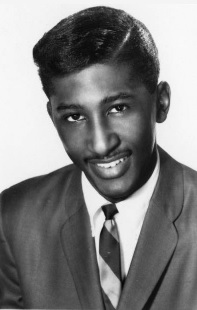Frankie "Hollywood" Crocker (December 18, 1937 – October 21, 2000) "the Chief Rocker" was one of the greatest personality D.J.'s who helped to break stereotypes throughout the radio broadcasting industry. His artistic vision made a deep mark in the world of radio. Crocker¹s genius as Program Director at WBLS-FM and WLIB-AM in the early 70's, led him to shape an innovative and influential radio format that would become known as progressive R&B.
According to popeducation.org, Crocker began his career in Buffalo at the AM Soul powerhouse WUFO (also the home to future greats Gerry Bledsoe, Eddie O'Jay, Herb Hamlett, Gary Byrd and Chucky T) before moving to Manhattan, where he first worked for Soul station WWRL and later top-40 WMCA in 1969. He then worked for WBLS as program director, taking that station to the top of the ratings during the late 1970s and pioneering the radio format now known as urban contemporary.
On the air Crocker was, as New York Daily News writer David Hinckley explained “the radio equivalent to Muhammad Ali.” He called himself “The Chief Rocker,” and “The Eighth Wonder of the World."
And Frankie's ego knew no bounds. At the height of his fabulosity he could be seen squiring Jayne Kennedy, walking his matching Afghan hounds, appearing in "Cleopatra Jones," taking on-air bubble baths with model Beverly Johnson, leading his own disco orchestra, and commanding local record labels to subsidize his live remotes from Cannes and fetch his fried chicken. But there was no disputing that Frankie was King of the New York airwaves. As he himself put it, "when Frankie Crocker isn't on your radio, your radio isn't really on."
When Studio 54 was at the height of its popularity, Crocker once rode in through the front entrance on a white stallion. He signed off the air each night to the tune "Moody's Mood for Love" by vocalese crooner King Pleasure. Crocker, a native of Buffalo, coined the phrase "urban contemporary" in the 1970s, a label for the eclectic mix of songs that he played.
He'd been the program director at WWRL and felt held back by what he considered to be the narrow perspective of the station. He quit and was twice re-hired by the station management; "He knew how to attract attention," the chairman of Inner City Broadcasting, Hal Jackson was the owner of WBLS and once said, "We called him Hollywood."
In late 1976 Crocker brought the Heart & Soul Orchestra over to the Casablanca label and arranged the disco-styled tracks for their new look. Most of their Casablanca tracks are disco cover versions of older tunes, for example by Cole Porter. Noteably, however, they covered Cerrone's "Love in C minor", and also "Midnite Lady". These are featured on their second, self titled album. The previous Casablanca double-album features the disco-tastic track "Poinciana".
By 1979 he was shuttling between the west and east coast, with programming duties at KUTE in L.A. which featured R&B before a format change instituted there and on the east coast at WBLS which he called "Disco and More", relying on his expertise at "finding the music". Speaking to Radio Report magazine, an industry periodical, Crocker said, "There is nothing I won't play if I hear it and like it and feel it will go for my market".
WBLS-FM broke Blondie, Madonna, Shannon, D Train, all Arthur Baker records, The System, Colonel Abrams, Alicia Myers and supermodel Grace Jones. He made, "Love is the Message" by MFSB NYC's unofficial anthem on the radio. WBLS airplay made "Ain't No Stoppin Us Now" by McFadden and Whitehead a favourite cookout, church, wedding and graduation song. "The Magnificent Seven" by the Clash became a hot song in the Black Community. He gave America exposure to an obscure genre called "Reggae" and a little known Jamaican rocker named Bob Marley. Fatback Band front man Bill Curtis credited Crocker with breaking the group in New York.
Crocker was the master of ceremonies of shows at the Apollo Theater in Harlem and was one of the first VJs on VH-1, the cable music video channel, in addition to hosting the TV series Solid Gold and NBC's Friday Night Videos. As an actor, Crocker appeared in five films, including Cleopatra Jones (1973), Five on the Black Hand Side (1973), and Darktown Strutters (Get Down and Boogie) (1975).
Frankie Crocker was inducted into the Buffalo Broadcasting Hall of Fame in 2000 and the New York State Broadcasters Association Hall of Fame in 2005. In October 2000, Crocker went into a Miami area hospital for several weeks. He was diagnosed with pancreatic cancer, and kept the illness a secret from his friends and even from his mother. He died at North Miami Beach, Florida, on October 21, 2000. His friend and former boss Bob Law, a onetime program director of WWRL, said of Crocker, "He encompassed all of the urban sophistication. He appreciated the culture, the whole urban experience, and he wove it together. That's missing now, even in black radio."
A true pioneer of his trade, Crocker may have predicted the impact of his accomplishments when on the album, The Best of Frankie Crocker, he proclaimed: “…before me there were none; after me there shall be no more.”
(Edited from Wikipedia, WNYC, wmfu & encyclopedia.com)









